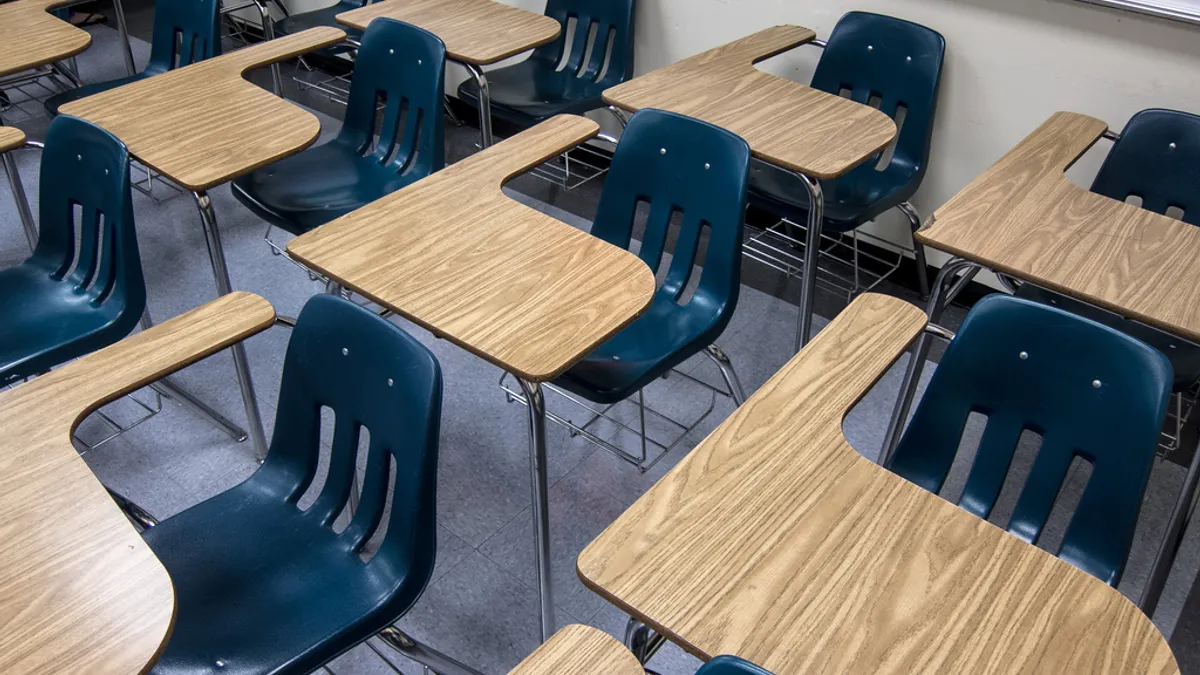Dive Brief:
- College trustees are growing more concerned about the future of higher education, according to the third-annual survey of governing board members by the Association of Governing Boards of Universities and Colleges (AGB) and Gallup.
- The share of trustees worried about the sector over the next decade rose to 85% in 2019 from 73% the prior year. Institutions' financial health and costs for students drove the concern at public and private nonprofit schools.
- Their heightened concern comes as reports show growing public doubt in the value of higher ed and as lawmakers lay out sweeping proposals to lower the cost of attending college.
Dive Insight:
The last year has been tumultuous for higher ed. Selective universities, for example, saw their admissions policies come under fire after the Varsity Blues scandal revealed that affluent parents paid millions to unfairly and even illegally secure their children spots at elite institutions
Additionally, long-simmering issues appear to be coming to a head. Many colleges are struggling with sagging enrollment, and that problem is likely to accelerate around 2026, when the number of high school graduates is expected to sharply decline.
"The enrollment cliff is getting closer," said Merrill Schwartz, AGB's senior vice president of content strategy and development, in an interview with Education Dive. "We're now in the 2020s."
Recent high-profile college closures have also shaken higher ed officials, Schwartz added. "It's becoming a more visible concern," she said.
Trustees are more worried about the financial stability of their institutions over the next decade. Sixty percent of board members for private nonprofit colleges cited this as a concern, compared to 55% of those at public institutions.
The next year may not be as dire as AGB's survey suggests, however. In December, Moody's Investors Service upgraded its outlook for higher ed to stable after it had been listed as negative for the prior two years.
Its analysts expect operating revenue to increase by 3.5% to 4.5% at large comprehensive universities and by 2% to 3% at smaller institutions. Even so, they warn that a market downturn could reduce donations made to colleges and that policy changes could hinder international enrollment.
Board members are also worried that the general public and prospective students don't have an accurate understanding of the nation's student debt, which has surpassed $1.6 trillion. Indeed, many Americans overestimate how much the average person borrows to complete a bachelor's degree, according to a recent survey from New America, a left-leaning think tank.
More than half (59%) of trustees surveyed by AGB believe it is important "to communicate accurate information about the current student debt situation to the public themselves," with a larger share of board members of public colleges saying so than those from private, nonprofit institutions.
About a quarter of trustees from public and private nonprofit institutions ranked the price of higher education for students as their top concern. However, board members of liberal arts institutions were less likely to do so. That may be because students are choosing them for a specific kind of educational experience, Schwartz said.
"There may be fewer students overall enrolled in these institutions, but that is the environment in which they choose to pursue a college degree," she added.










